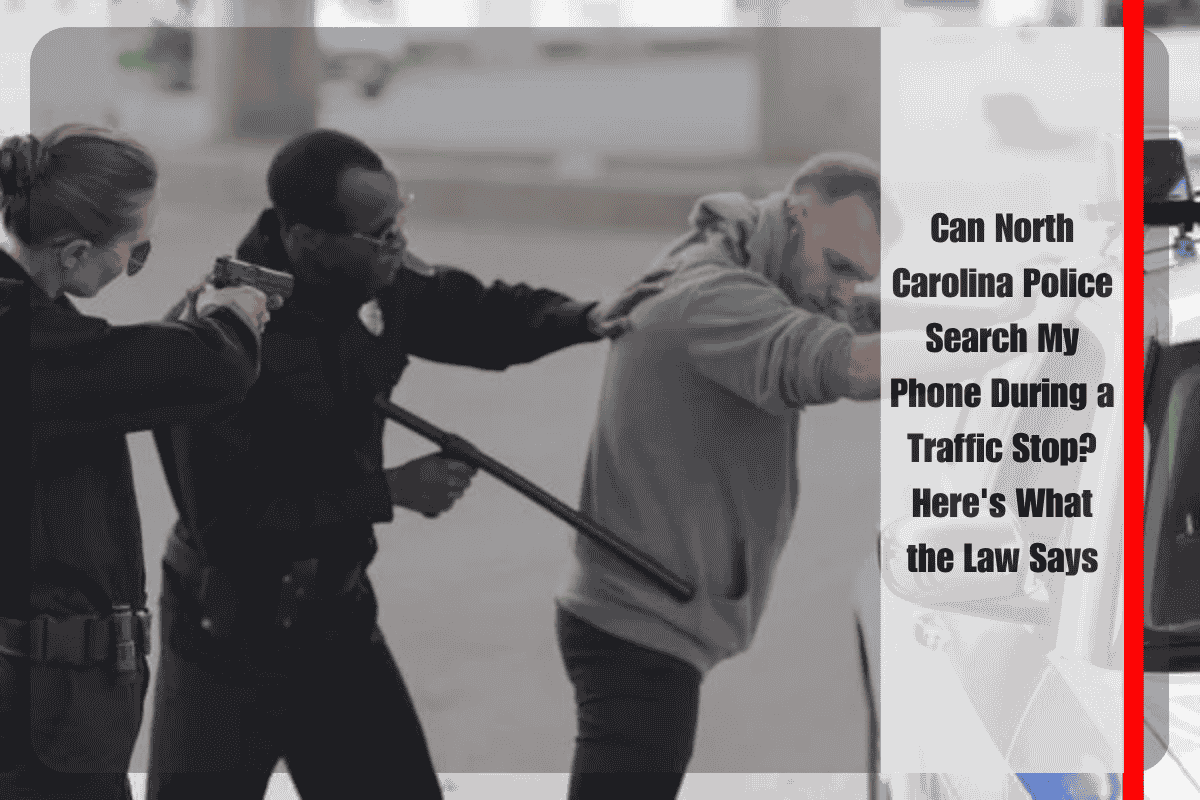If you’re stopped by the police in North Carolina, you may wonder whether officers have the right to search your phone. In an age where mobile devices hold an immense amount of personal information, understanding your rights during a traffic stop is more important than ever. The question of whether police can search your phone without your consent has raised concerns for many drivers. This article will explain the laws surrounding phone searches during traffic stops in North Carolina, and what you need to know to protect your rights.
The Fourth Amendment of the United States Constitution protects individuals from unreasonable searches and seizures, which includes searches of personal belongings, such as your phone. However, there are certain exceptions to this rule, especially during interactions with law enforcement. In general, the police cannot search your phone during a traffic stop unless they have a valid legal reason. A simple traffic violation or the suspicion of a minor crime does not automatically give the police the right to access the contents of your phone.
Under North Carolina law, as well as federal law, police officers generally need a warrant to search your phone. This is in line with the landmark 2014 Supreme Court decision in Riley v. California, which ruled that police cannot search the contents of a cell phone without a warrant, even if they have arrested someone. The ruling was based on the idea that a phone holds a vast amount of personal and private information, which deserves protection from unreasonable searches.
However, there are exceptions where police may search your phone without a warrant during a traffic stop. If you are arrested, officers may have the right to search your phone as part of a broader search incident to the arrest. This search must be related to the arrest and reasonable under the circumstances. For example, if you are arrested for a crime and there is a belief that evidence related to the crime could be on your phone, the police might have the legal authority to search your device.
Another situation where a search may be permitted is if you give the police consent to search your phone. In this case, the search would not require a warrant. However, it’s essential to note that you are under no obligation to consent to a search. If police ask to search your phone, you have the right to refuse. It’s important to clearly state that you do not consent to the search, as any consent given voluntarily can be used against you later in court.
There are also situations where the police can search your phone if they believe there is an emergency or a threat to public safety. For instance, if there is an immediate need to access information on your phone to prevent harm or to investigate a crime, the police may be able to conduct a search without a warrant. These are rare circumstances, and law enforcement must be able to justify the urgency of the situation.
If you are pulled over and the police ask to search your phone, it’s crucial to understand that you have the right to refuse unless they have a warrant or a valid exception applies. In many cases, it’s best to politely decline the request and ask if you are free to go. If the police persist, they may attempt to seize your phone or take further action. If this happens, it’s important to remain calm and avoid making any statements that could be interpreted as consent.
In North Carolina, as in the rest of the country, you are not required to unlock your phone for the police. If they demand access to your phone and you refuse, they may try to compel you to unlock it. However, you have the right to refuse to unlock your phone, especially if it involves giving up your passcode or other personal access information. Refusing to unlock your phone may lead to the police obtaining a warrant, but this still requires legal procedures to be followed.
Overall, police cannot search your phone during a traffic stop unless they have a warrant, your consent, or an exception applies, such as an arrest or an emergency situation. If you are concerned about your rights during a traffic stop, it is always a good idea to stay calm, assert your rights politely, and seek legal counsel if necessary.
North Carolina law provides strong protections against unreasonable searches of your phone during traffic stops. While there are some exceptions, such as during an arrest or with your consent, the general rule is that police need a warrant to search your phone. Understanding your rights in these situations can help ensure that you are treated fairly and that your personal information remains protected.
Sources
[1] https://www.garrettandwalker.com/can-police-force-you-to-unlock-your-phone-in-nc/
[2] https://www.acluofnorthcarolina.org/en/know-your-rights/stopped-police
[3] https://www.govtech.com/public-safety/can-police-search-your-phone-during-a-traffic-stop
[4] https://nccriminallaw.sog.unc.edu/can-i-take-a-look-at-your-phone/
[5] https://seiferflatowlaw.com/cell-phone-privacy-rights-who-can-get-access-to-my-cell-phone/












